in Thoreau’s Journal:
Now we have quite another kind of ice. It has rained hard, converting into a very thin liquid the snow which had fallen on the old ice, and this, having frozen, has made a perfectly smooth but white snow ice. It is white like polished marble (I call it marble ice), and the trees and hill are reflected in it, as not in the other….
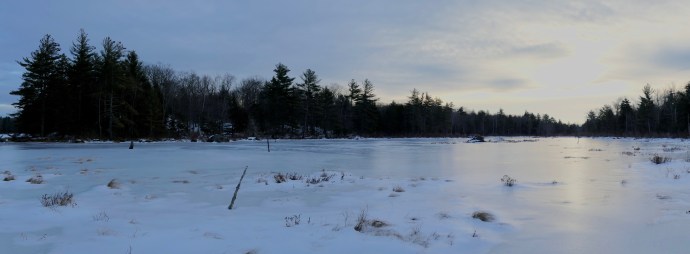
Surely the ice is a great and absorbing phenomenon. Consider how much of the surface of the town it occupies, how much attention it monopolizes! We do not commonly distinguish more than one kind of water in the river, but what various kinds of ice there are!

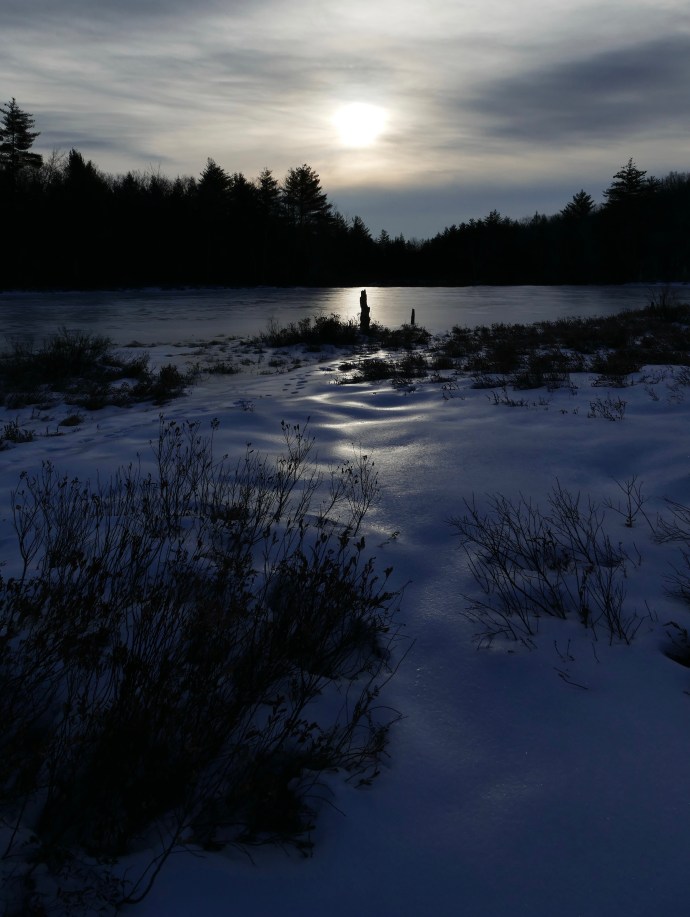
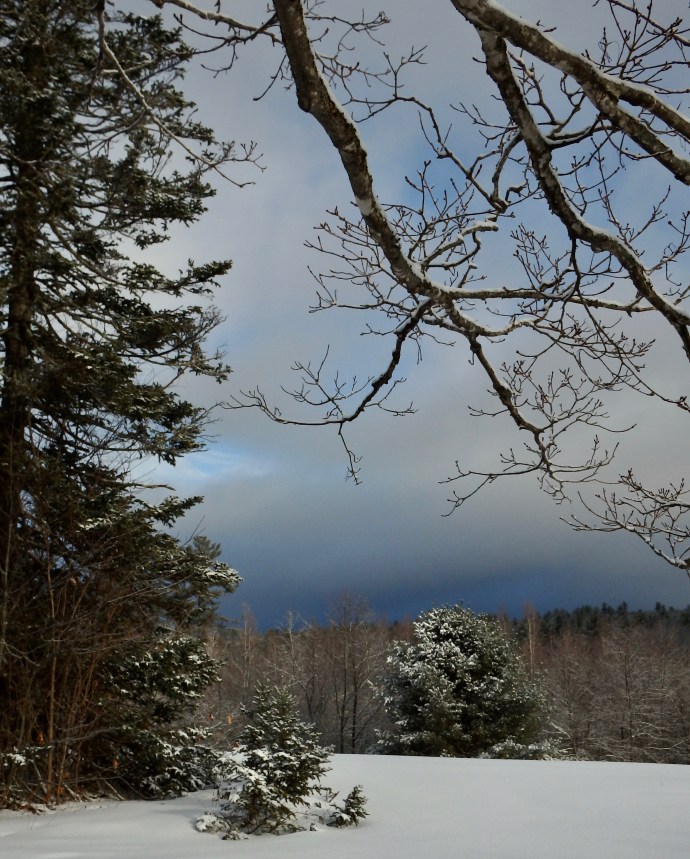
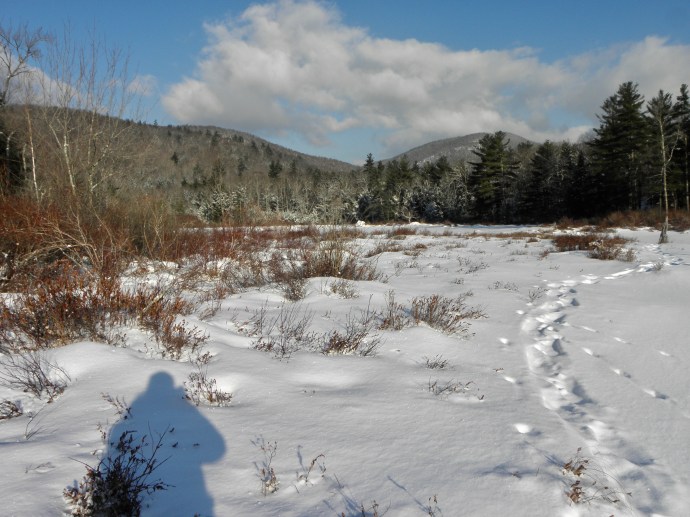

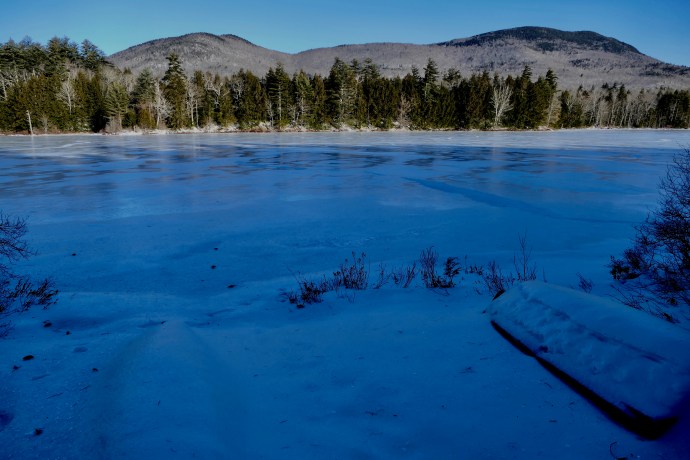
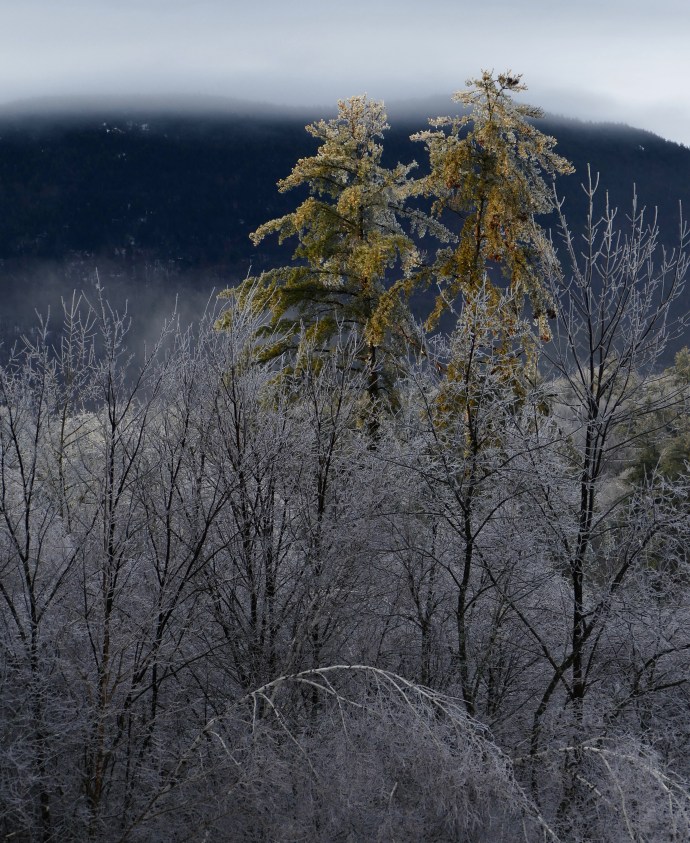

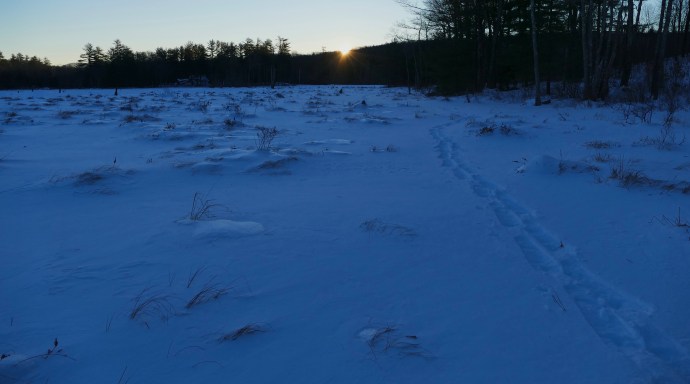

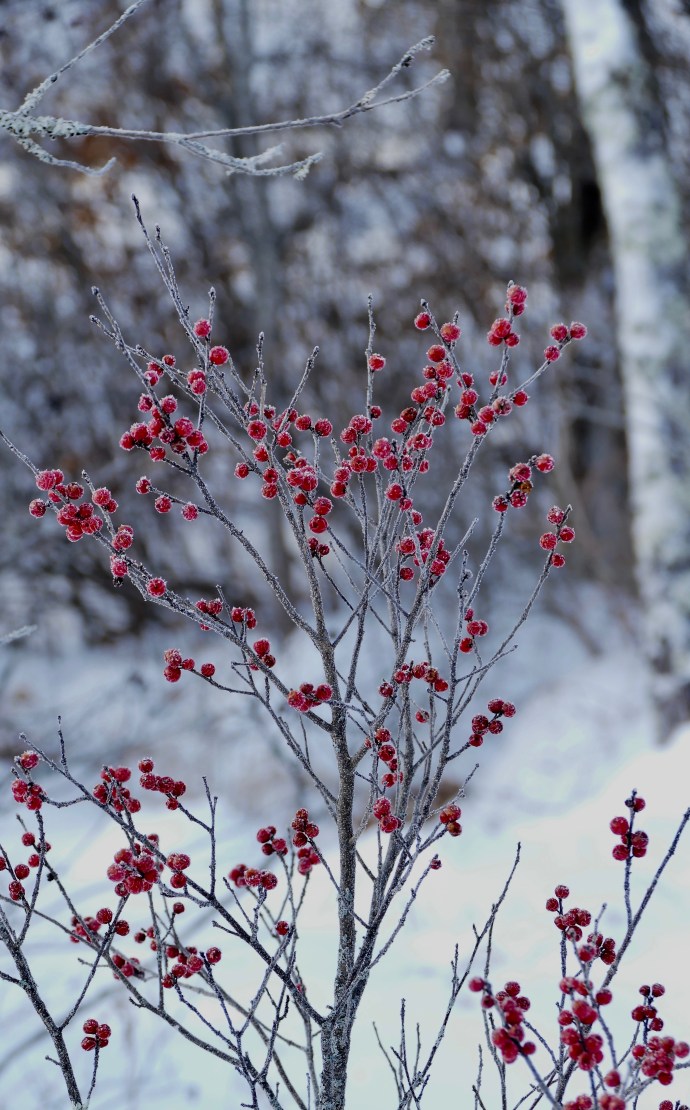

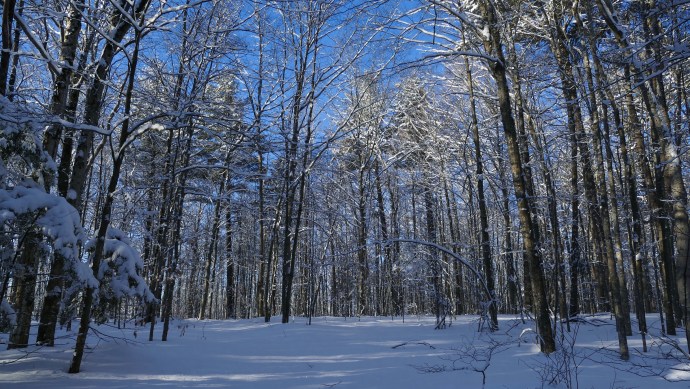
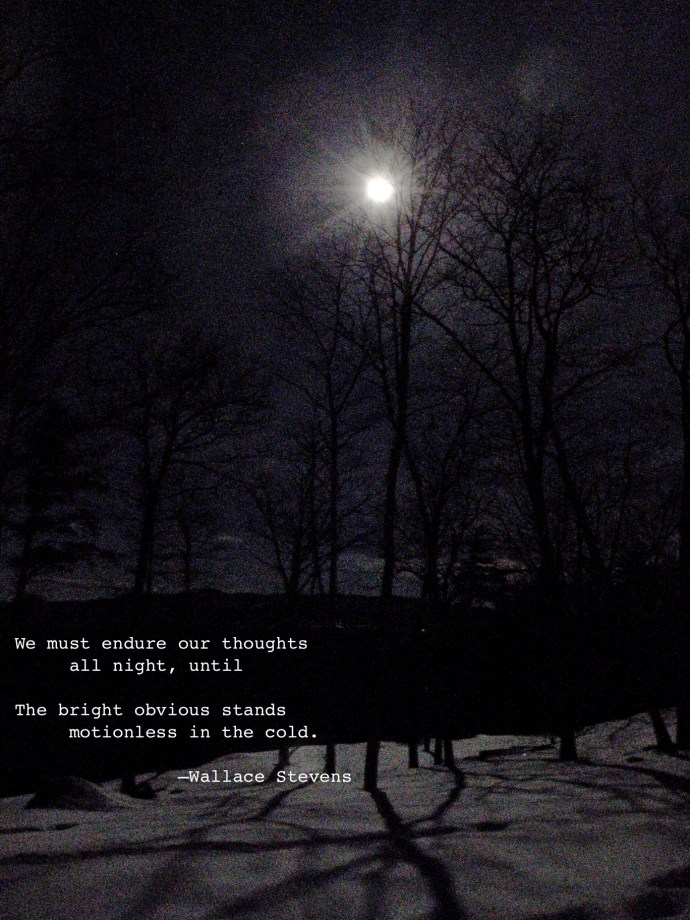


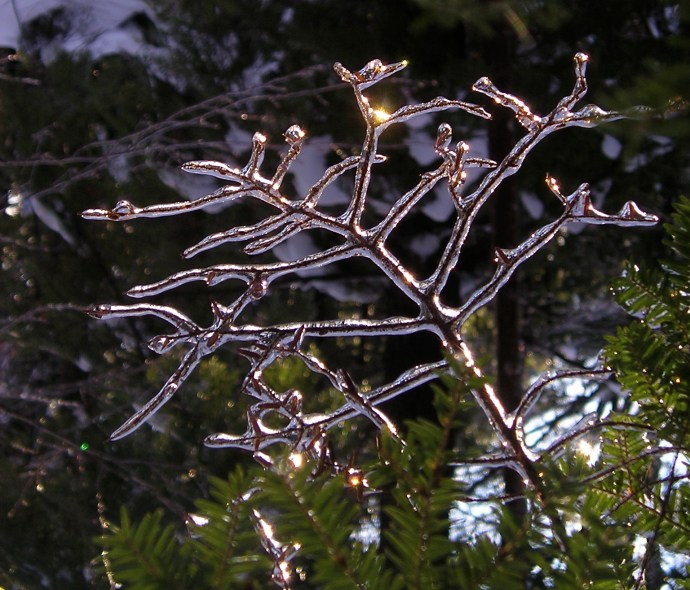
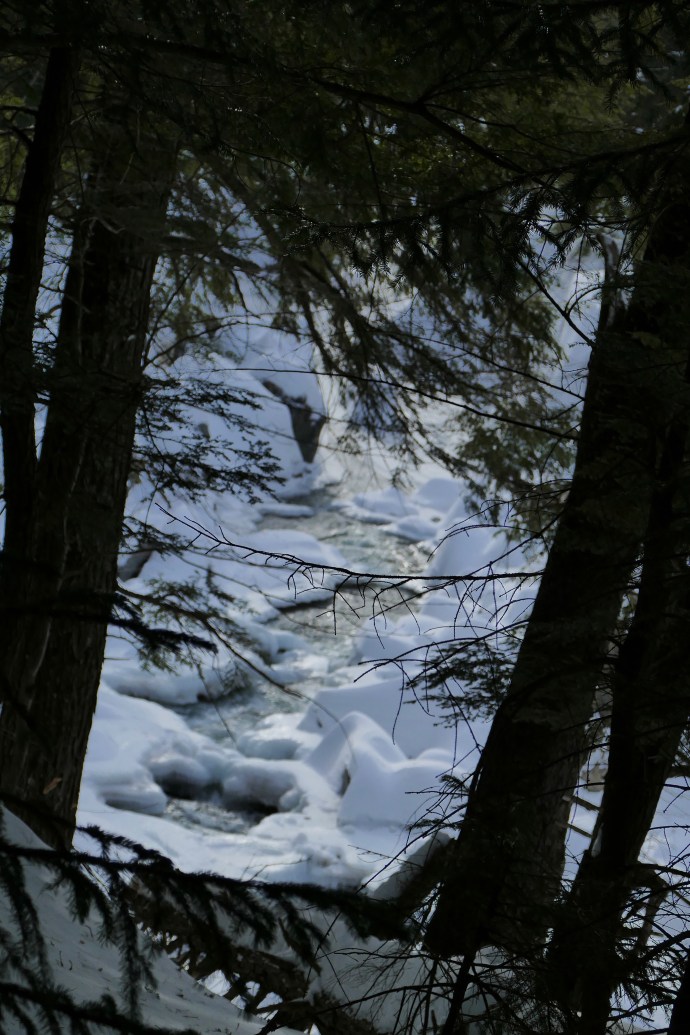



You must be logged in to post a comment.